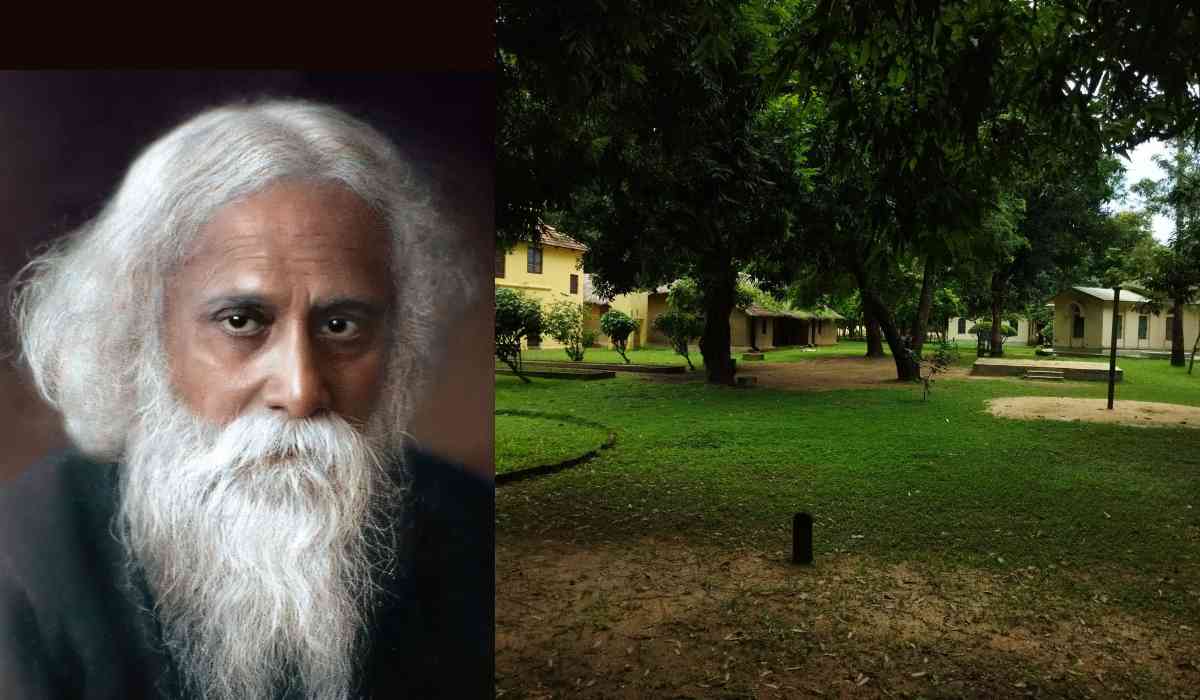In a momentous recognition of its cultural and historical significance, Santiniketan, the town nestled in West Bengal's Birbhum district where the renowned poet and Nobel laureate Rabindranath Tagore spent a substantial part of his life, has been officially added to the prestigious UNESCO World Heritage List.

Santiniketan, with its deep-rooted connection to India's cultural heritage, has long been a place of reverence for literature enthusiasts and admirers of Tagore's works. Established by Tagore in 1901, the town began as an ashram devoted to spiritual contemplation and later transformed into a centre for art, culture, and education.
The UNESCO recognition highlights the exceptional role played by Santiniketan in fostering a vision of unity that transcends cultural, religious, and societal boundaries. Tagore's vision was embodied in the establishment of Visva Bharati University in 1921, often referred to as the "world university." This institution symbolizes the idea of "Visva Bharati," signifying the unity of humanity.
In contrast to the dominant architectural styles of British colonial influence and European modernism in the early 20th century, Santiniketan represents a different strategy toward pan-Asian modernity. It is influenced by regional folk, medieval, and ancient traditions.
The International Council on Monuments and Sites (ICOMOS), a global non-governmental organization dedicated to preserving and enhancing the world's architectural and landscape heritage, recently recommended that Santiniketan be granted UNESCO recognition.
According to the official description provided by the UNESCO World Heritage Center, Debendranath Tagore, the father of Rabindranath Tagore, founded Santiniketan as an ashram, and regardless of caste or creed, anyone from any background was welcome to meditate and reflect on the one Supreme God at this ashram. Rabindranath Tagore, an important figure in the Indian Renaissance, later transformed it into his prestigious home and creative centre.
Visva Bharati in Santiniketan holds the distinction of being Bengal's sole central university, with the Prime Minister serving as its chancellor. India's journey to secure UNESCO recognition for Santiniketan involved dedicated efforts, with the campaign renewed in 2021. A fresh dossier, crafted in collaboration between the Archaeological Survey of India and Visva Bharati authorities, was submitted to UNESCO.
The inclusion of Santiniketan in the UNESCO World Heritage List is not only a tribute to Tagore's enduring legacy but also a testament to India's commitment to preserving its rich cultural heritage. This recognition reaffirms Santiniketan's place among the world's most cherished cultural treasures, celebrating its unique role in promoting unity and cultural diversity.
(Images Source: Santiniketan, X)
Ⓒ Copyright 2023. All Rights Reserved Powered by Vygr Media.





















